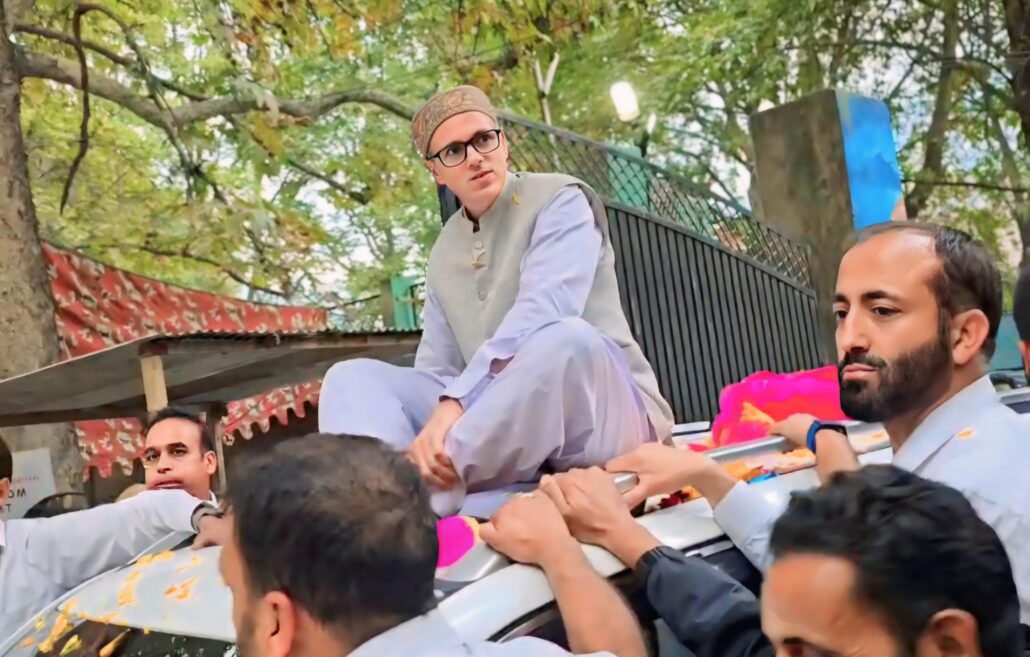
Shah Shahid
“Thank God, I write a lot on Twitter but do not read anything…. I want to assure the people of Jammu Kashmir that our agenda will be set by every section of Kashmiri public، not only by a few social media users,” said Chief Minister Omar Abdullah, addressing the growing influence of social media on political discourse.
For the past few days, Kashmir has been gripped with Twitter space fever. Whatever is discussed in these digital forums seems to make its way into the Jammu Kashmir Assembly the next day, sending a confusing signal to both politicians and the public.
Chief Minister Omar Abdullah recently addressed this phenomenon, stressing that the government’s agenda would not be dictated by social media platforms like WhatsApp, Facebook, and Twitter.
His statement, while grounded in the current digital age, is a refreshing reminder that the issues affecting the public cannot be reduced to hashtags or online trends.
In recent times, politicians from MPs to local legislators have been flocking to social media spaces with a set agenda.
It’s more than just wanting to have a say in the public discourse—it’s about regaining their presence in a space where they’ve been largely absent for the past five years. During this time, expression in Kashmir was nothing short of a battle.
The internet shutdowns, communication blockages, and political uncertainties created a chilling effect, silencing many voices. Now, as things slowly return to normal, a plethora of influencers, many from the elite class, are clamoring to dominate the public conversation. This new wave of social media activism, however, brings to light a critical issue-elitism.
Elitism isn’t just about money; it’s about privilege—the ability to remain untouched by the everyday struggles of the common people. Philosopher Pierre Bourdieu argued that elitism is not merely a matter of financial power, but rather a form of cultural and social dominance, what he termed “social capital.”
This concept refers to the networks, knowledge, and privileges that are passed down through generations, creating a divide between the elite and the rest of society.
The elite, with their ingrained habitus, are often detached from the lived realities of the working class, shaping decisions and discourses that fail to acknowledge or address the material struggles of the majority.
Though the social media crowd is undoubtedly an important part of the society but in Kashmir, the detachment from a handful of issues is evident in the digital spaces that dominate public conversations, where the most pressing issues of the common man, such as food insecurity and economic hardship, are often overlooked.
Take, for example, the issue of rice scarcity in Kashmir, which has impacted the majority of the population. Yet, it is almost never discussed in these social media spaces, as the voices leading the discourse often come from a position of comfort, far removed from such struggles. These digital spaces, largely controlled by the privileged, fail to bring attention to the issues that matter most to the people.
Not everyone participating in these spaces or becoming a part of this discourse is necessarily elite. But that’s precisely what elitism feeds on—the ability to co-opt others into its fold. Those who, perhaps unwittingly, become part of this spread of elitism are exactly the ones who help sustain and expand its monopoly.
In these digital spaces, where power dynamics are often subtle but pervasive, the lines between true influence and mere participation can blur. Even voices that may seem outside the elite circle can, in this context, reinforce the very structures they might aim to challenge. This is how elitism maintains its grip: by pulling in individuals from all walks of life, making them complicit in a system that rarely addresses the struggles of the common people.
While discussions on the abrogation of Article 370 and 35-A are important, they often fall short of addressing the structural problems that have unfolded since its historic revocation on August 5, 2019.
The economic fallout, including the loss of sand extraction rights and mining contracts, the linguistic and cultural tensions, and the ethnic struggles that have emerged, rarely get the in-depth examination they deserve. These issues require more than just a passing comment or a tweet to understand. They demand a thoughtful, nuanced approach, something that social media’s fast-paced nature is ill-suited to provide.
Omar Abdullah’s statement, in many ways, offers hope. It acknowledges the need for a more grounded, people-centric agenda—one that doesn’t bow to the transient nature of social media trends.
By asserting that the government’s focus should remain on the needs of the people rather than the whims of social media influencers, Abdullah is advocating for a return to real-world, pragmatic policy making.
It’s a reminder that governance should not be dictated by the loudest voices in the room, but by the concerns of those who have been most affected by the decisions being made.
In this context, his words are both timely and necessary. They highlight the growing divide between the elite discourse and the pressing issues of the average Kashmiri.
Now, the challenge is whether this statement can be translated into action that reflects the true needs of the people—one that doesn’t get lost in the noise of social media, but instead listens to the realities on the ground.




